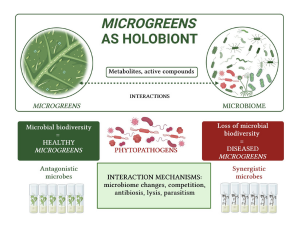The seminars are held at 16:30 via the Webex application (recording, privacy), and are conducted in English.
To receive information about monthly seminars, register here.
Contact:
Maksymilian Szymczak
 Web Content Display
Web Content Display
Web Content Display
Web Content Display
 Web Content Display
Web Content Display
Web Content Display
Web Content Display
The seminars are held at 16:30 via the Webex application (recording, privacy), and are conducted in English.
To receive information about monthly seminars, register here.
Contact:
Maksymilian Szymczak
 Web Content Display
Web Content Display
Web Content Display
Web Content Display
Pursuant to § 7 sections 1 and 3 of Resolution No. 61/X/2022 of the Senate of the Jagiellonian University of 26 September 2022 on: the rules of recruitment for the Doctoral School of Exact and Natural Sciences at the Jagiellonian University in the academic year 2023/2024, the Director of the Doctoral School of Exact and Natural Sciences announces a competition for 1 doctoral student with a scholarship financed from the research project funds as part of the Phd programme in Biology education programme.
Within the NCN Opus 20 project entitled “The effect of aging on body temperature dependent antioxidative capacity, and thus oxidative stress: the burden of heterothermyh”, the project manager, dr hab. Ulf Bauchinger, prof. UJ offers an opportunity to complete the doctorates in the following area (title):
"The effect of aging on body temperature dependent antioxidative capacity, and thus oxidative stress: the burden of heterothermyh”
After the interviews and the evaluation of the candidates, the Chairman of the committee presents a report to the Director containing a list of candidates recommended for admission to the school as part of the research project.
As endotherms, mammals and birds have evolved the capacity to thermoregulate, an evolutionary achievement with profound impact on biology and ecology. Endothermy, however, does not necessarily entail a constant body temperature throughout a day, a year or a life time. Instead, many mammals are known to hibernate seasonally or enter torpor, reducing their body temperature by a few °C to several tens of °C below the normothermic level. Birds are known to also become torpid or and reduce body temperature during the night by rather a few °C with some exceptions of up to two tens of °C. These on first sight small temperature drops may, however, have profound effects on enzymatic activity. The rate of biochemical reactions in general, and enzymatic reactions in particular are highly temperature dependent, which also applies to enzymes that act as antioxidants against free radicals. They protect against the negative effects of oxidative stress through free radical scavenging and if this protective enzymatic action is reduced in its rate, free radicals may remain unchecked, which may lead to oxidative damage of biomolecules. Such oxidative damage risks functional integrity of biomolecules and is currently one of the most frequently forwarded driver of aging. This research is designed to understand how regulation of body temperature may be hampered by increasing age and how this impaired thermoregulatory capability may lead to increased oxidative stress when animals grow old.
While it is well established for mammals, including us humans, that body temperature and the capacity to thermoregulate declines with increasing age, such data are virtually absent for birds, and in addition were never linked to oxidative stress. Our research project will provide thorough understanding how age in the context of senescence influences thermoregulation in birds. The second goal of our research is then to relate the thermogenic capacity of birds of different age to oxidative stress to test the hypothesis that body temperature is related to the rate of oxidative damage.
For further information please contact Ulf Bauchinger (ulf.bauchinger@uj.edu.pl)
An additional advantage will be:
Schedule of the competition:
Application documents for PhD study programme Phd Programme in Biology
Documents required for entry within PhD Programme in Biology.
In particularly justified cases, at the request of the Co-ordinator of the Education Programme, on the basis of a written justification submitted by the Candidate to Doctoral School, the Director of the Doctoral School may waive the requirement to submit an apostille or legalize university diplomas or other documents.
In the event of exposure to harmful, noxious or hazardous factors, the applicant will, at the time of registration, be referred for a medical examination by an occupational medicine physician. The candidate shall be obliged to deliver, within the time limit set by the programme manager, a medical certificate confirming the absence of contraindications to take up education (applies only to some PhD study programmes).
Any document submitted in a language other than Polish or English must be accompanied by a certified translation into Polish or English.
A person admitted to the doctoral school begin education and acquire doctoral student rights upon taking the oath.
